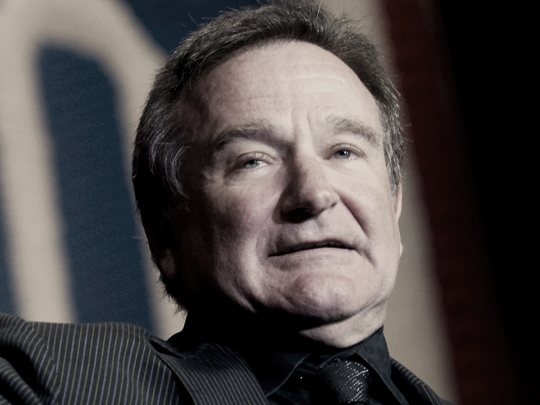Photo by Chad J. McNeeley, U.S. Navy / Wikimedia Commons / CC-BY-SA-3.0 / GFDL
Robin Williams
(Actor)
21 July 1951 – 11 August 2014 (Aged 63)
Williams was a much-loved American actor and comedian whose performance as psychologist Sean Maguire in Good Will Hunting won him the Best Supporting Actor Academy Award.
During the 1970s, Williams went to the famed Juilliard School in New York City, before getting into stand-up comedy in San Francisco and Los Angeles. He had lived with his good friend and actor Christopher Reeve while in New York.
In 1978, Williams got his big break in the role as the alien Mork in Mork & Mindy, becoming renowned for his improvisation skills. Williams won a Grammy Award for his 1979 show at the Copacabana in New York, “Reality…What a Concept”.
Among Williams’ most acclaimed films are Popeye, Good Morning, Vietnam, Dead Poets Society, Aladdin, Good Will Hunting, One Hour Photo, Hook, Mrs. Doubtfire, and Jumanji.
In 1986, Williams teamed up with Whoopi Goldberg and close friend Billy Crystal to found Comic Relief USA, the annual television benefit for America’s homeless has raised over $80 million to date.
Over the course of his career, Williams was nominated for four Academy Awards, winning one. He also received two Emmys, four Grammys, seven Golden Globes, and two Screen Actors Guild Awards.
At the age of 63, Williams committed suicide in his California home. It has been attributed to his struggle with diffuse Lewy body dementia.
After being cremated, his ashes were scattered over San Francisco Bay.
Alfredo Di Stéfano
(Footballer)
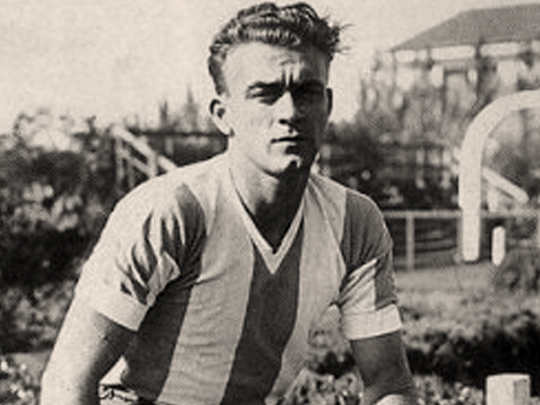
4 July 1926 – 7 July 2014 (Aged 88)
Di Stefano was a legendary Argentinian professional footballer, widely regarded as one of the best footballers of all time. He is renowned for leading Real Madrid to a record five European Cup’s in-a-row during the 1950s.
Having been become a star in Argentina and Colombia with River Plate and Millionarios, Di Stéfano was the subject of a complicated bidding war between Real Madrid and FC Barcelona, which Real won in 1953.
Nicknamed the “Blond Arrow”, Di Stefano was a prolific forward, who is Real Madrid’s third-highest league goalscorer of all time, scoring 216 goals in 282 league matches between 1953 and 1964.
In 1967, Di Stéfano moved into the coaching, becoming manager of Elche CF in Spain. He went on to lead Boca Juniors to a league and cup double in 1969, before enjoying varying levels of success with numerous clubs.
Uniquely, Di Stéfano played international football for three countries, firstly Argentina and Colombia, but mostly for Spain after he moved to Madrid. He is recognized as one of the greatest players to never play in a World Cup.
In 2003, to celebrate UEFA’s Jubilee, he was selected as the Golden Player of Spain by the Spanish Football Federation as their most outstanding player of the past 50 years.
In 2011, Di Stéfano was named the first inductee to the FIFA Hall of Fame. He also came fourth in a “Player of the Century” vote by France Football magazine. At the age of 88, Di Stefano died following a heart attack on July 7, 2014.
Ian Paisley
(Northern Ireland Politician)
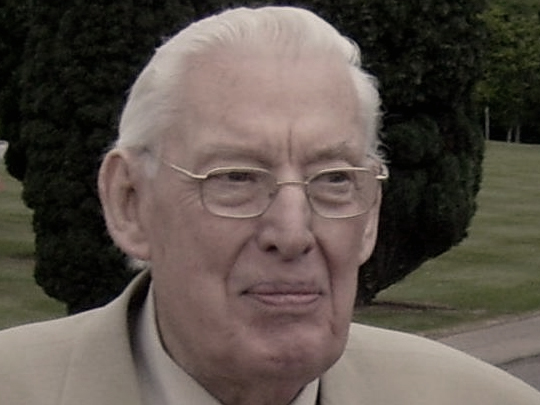
6 April 1926 – 12 September 2014 (Aged 88)
Paisley was a loyalist politician and Protestant religious leader, who played a hugely influential role in Northern Ireland politics during his life.
After becoming a Protestant evangelical minister in 1946, Paisley co-founded the fundamentalist Free Presbyterian Church of Ulster in 1951, leading it until 2008.
Known for his fiery sermons and protesting against Catholicism, Paisley became involved in Ulster Unionist politics in the late 1950s, going on to lead loyalist opposition to the Catholic civil rights movement in Northern Ireland.
These actions played a role in the outbreak of the Troubles in the late 1960s, a conflict that would consume the country for the next thirty years.
In 1970, Paisley became a Member of Parliament and founded the Democratic Unionist Party, going on to lead it for nearly forty years. In 1979 he became a Member of the European Parliament.
During the Troubles, Paisley opposed all attempts to resolve the conflict through power-sharing, all efforts to involve the Republic of Ireland, and opposed the Northern Ireland peace process and Good Friday Agreement of 1998.
In 2005, Paisley’s DUP became the largest unionist party in Northern Ireland, then in 2007, the DUP finally agreed to power-share with Sinn Féin, the Irish republican party, following the St Andrews Agreement.
Paisley and Sinn Féin’s Martin McGuinness became First Minister and deputy First Minister respectively in May 2007, with the pair remarkably going on to become good friends. Paisley stepped down from his post a year later.
In 2011, Paisley left politics, after an incredible political turnaround which helped to lead his country to a state of peace and prosperity that was seen as unimaginable for many decades. Paisley died at the age of 88.
Lauren Bacall
(Actress)

16 September 1924 – 12 August 2014 (Aged 89)
Bacall was an iconic American actress who is recognized as one of the greatest female stars from Hollywood’s golden age.
Known for her distinctive voice and sultry looks, Bacall began her career as a model, before making her film debut as a leading lady in To Have and Have Not in 1944, with Humphrey Bogart, whom she would marry the following year.
Among Bacall’s best-known films are The Big Sleep, Dark Passage, Key Largo, How to Marry a Millionaire, Murder on the Orient Express, The Shootist, and The Mirror Has Two Faces.
Also an acclaimed star of Broadway musicals, Bacall earned a Tony Award for Applause in 1970 and Woman of the Year in 1981.
In 1996, Bacall won a Golden Globe Award for Best Supporting Actress, was inducted into the American Theater Hall of Fame in 1998, received an Academy Honorary Award in 2009, and honored with a Cecil B. DeMille Award.
Bacall’s first memoir, By Myself, during which she openly discusses her life and personal difficulties, won a National Book Award in 1978. Bacall died after suffering a stroke at the age of 89.
Ben Bradlee
(Newspaper Editor)
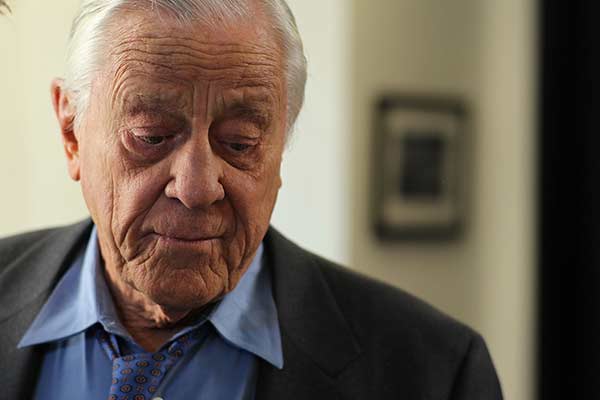
26 August 1921 – 21 October 2014 (Aged 93)
Bradlee was a renowned American journalist who was the executive editor of The Washington Post from 1968 to 1991.
During World War II, Bradlee served in the Office of Naval Intelligence, working as a communications officer in the Pacific, and saw action in one of, if not, the biggest naval battles ever fought, the Battle of Leyte Gulf.
After the war, Bradlee helped to launch and become a reporter at the New Hampshire Sunday News. In 1948, he sold the paper and started working for The Washington Post as a reporter.
During the presidency of Richard Nixon, Bradlee came to national attention, becoming a central figure in two of the most high profile stories of the 20th century, first the Pentagon Papers and then the Watergate scandal.
In 1971, Bradlee successfully challenged the U.S. government over the right to publish the Pentagon Papers, revealing the scope of U.S. involvement in the Vietnam War, including bombings and raids which had not been reported in the mainstream media.
Following a burglary at Democratic National Committee Headquarters in June 1972, Bradlee oversaw the publication of Bob Woodward and Carl Bernstein’s stories documenting the Watergate scandal.
The efforts of the Washington Post news team revealed a trail of corruption linked to Nixon’s White House and ultimately the resignation of Nixon on August 9, 1974.
In recognition of his life’s work, Bradlee won the Walter Cronkite Award for Excellence in Journalism in 1998. He was also awarded the French Legion of Honor and in 2013, he was awarded the U.S. Presidential Medal of Freedom.
Bradlee spent his final years suffering from dementia, and declining health as a result of Alzheimer’s disease before he died at the age of 93.
Ariel Sharon
(Israeli Prime Minister)
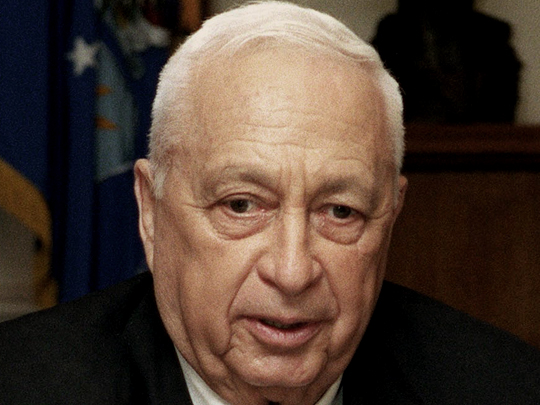
26 February 1928 – 11 January 2014 (Aged 85)
Sharon was an Israeli general and politician who served as the 11th Prime Minister of Israel from March 2001 until April 2006.
From its creation in 1948, Sharon was a commander in the Israeli Army. Sharon became an instrumental figure in the 1948 Palestine war, the 1956 Suez Crisis, the Six-Day War of 1967, and the Yom-Kippur War of 1973.
After retiring from the military in 1973, Sharon entered politics, serving in a number of ministerial posts in Likud-led governments between 1977 and 1999.
In 1982, Sharon directed the Lebanon War as Minister of Defence. An official inquiry later found that Sharon bore “personal responsibility” for the Sabra and Shatila massacre and recommended that he be removed as Minister.
From the 1970s to the 1990s, Sharon championed the construction of Israeli settlements in the West Bank and Gaza Strip. In 2000, he became the leader of the Likud, then serving as Israel’s prime minister from 2001 to 2006.
However, as Prime Minister, Sharon orchestrated Israel’s unilateral disengagement from the Gaza Strip in 2004–05. Following strong opposition within the Likud, he left to form a new party, Kadima, in November 2005.
Having been expected to win the next election, Sharon suffered two strokes by early January 2006, remaining in a vegetative state in a coma until his death eight years later.
Joan Rivers
(Comedian/TV Host)

8 June 1933 – 4 September 2014 (Aged 81)
Rivers was an American comedian and television host renowned for her controversial humor and being notable for breaking new ground for what had been considered acceptable female behavior.
In 1965, Rivers rose to prominence as a guest on The Tonight Show Starring Johnny Carson. In 1986, Rivers became the first woman to host a late-night television talk show with a rival program, The Late Show with Joan Rivers.
From 1989 to 1993, Rivers subsequently hosted The Joan Rivers Show, winning a Daytime Emmy for Outstanding Talk Show Host.
In her later years, Rivers won the 2009 Celebrity Apprentice, co-hosted the E! celebrity fashion show Fashion Police, and starred in the reality series Joan & Melissa: Joan Knows Best? with her daughter Melissa from 2011 to 2014.
Rivers authored 12 best-selling books and three-LP comedy albums and posthumously received a Grammy Award for Best Spoken Word Album in 2015 for her book, Diary of a Mad Diva.
Rivers died after experiencing complications following what was meant to be a minor throat procedure, dying from brain damage caused by a lack of oxygen.
In 2017, Rolling Stone magazine ranked Rivers sixth on their list of the 50 best stand-up comics of all time. She was also inducted into the Television Academy Hall of Fame later the same year.
Richard Attenborough
(Actor)
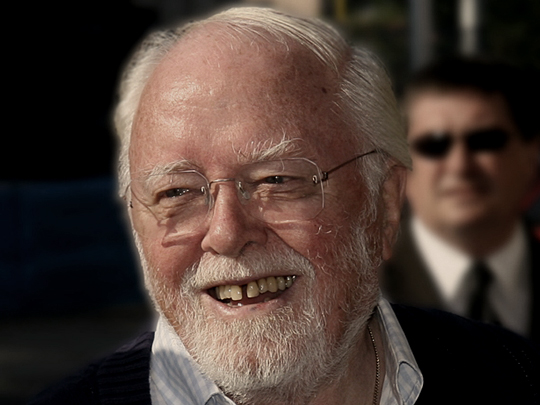
29 August 1923 – 24 August 2014 (Aged 90)
Attenborough was a much-loved British actor and director known for directing the acclaimed Gandhi and Cry Freedom, as well as his roles in The Great Escape and as Santa Claus in Miracle on 34th Street.
During World War II, Attenborough joined the Royal Air Force and served in the film unit. He went on several bombing raids over Europe and filmed the action from the rear gunner’s position.
Among Attenborough’s best-known films as an actor or director are Brighton Rock, The Great Escape, Gandhi, Chaplin, Miracle on 34th Street (1994 version), Cry Freedom, and Jurassic Park.
In 1983, Attenborough directed Gandhi, which won him the Academy Award for Best Director and also won Best Picture. He subsequently won four BAFTA Awards and four Golden Globe Awards.
Attenborough went on to become the President of the Royal Academy of Dramatic Art(RADA) and the British Academy of Film and Television Arts (BAFTA).
After suffering heart problems and a stroke in his later years, Attenborough died five days before his 91st birthday, leaving behind his wife, actress Sheila Sim, whom he married in 1945.
Among the many awards he received, Attenborough was awarded a British Knighthood, France’s Legion of Honour, and South Africa’s Oliver Tambo Award ‘for his contribution to the struggle against apartheid’.
Shirley Temple
(Actress)
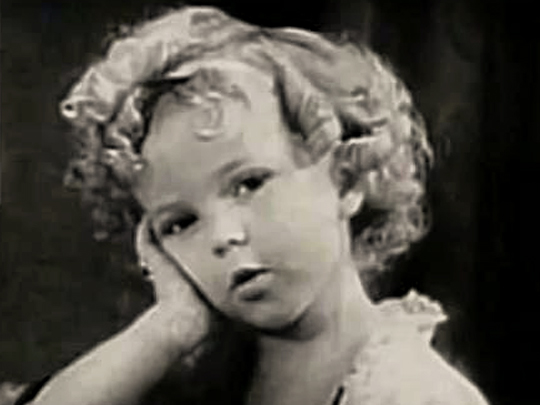
23 April 1928 – 10 February 2014 (Aged 85)
Temple was a famous American child actress and later diplomat, who was a Hollywood star during the 1930s.
As an adult, she was named United States ambassador to Ghana and to Czechoslovakia, and also served as Chief of Protocol of the United States.
In 1932, at the age of three, Temple began her film career, achieving international fame in Bright Eyes. She received a special Juvenile Academy Award in February 1935 for her outstanding contribution as a juvenile performer.
Films such as Curly Top and Heidi brought Temple further success by the late 1930s. Her popularity waned in her teenage years, appearing in fewer films before she retired from the film industry at the age of 22 in 1950.
In 1958, Temple returned with a two-season television anthology series, also making guest appearances on television shows in the early 1960s, before a failed run for Congress with the Republican party in 1967.
In 1969, Temple began her diplomatic career, when she was appointed as a delegate to the 24th United Nations General Assembly represent the United States.
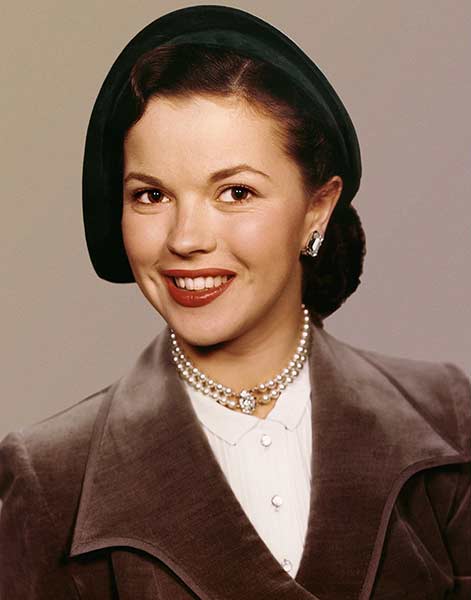
Among her other diplomatic roles, Temple was the first female Chief of Protocol of the United States, the United States Ambassador to Ghana, and the United States Ambassador to Czechoslovakia during the Velvet Revolution.
Temple sat on the boards of a number of prestigious corporations and organizations including The Walt Disney Company, Del Monte Foods, and the National Wildlife Federation.
Throughout her life, Temple received numerous honors, including the Kennedy Center Honors and a Screen Actors Guild Life Achievement Award.
Having been a lifelong smoker, Temple died from lung disease at the age of 85.
The American Film Institute lists Temple as 18th on their list of the greatest female screen legends of Classic Hollywood cinema.
Eusébio
(Footballer)
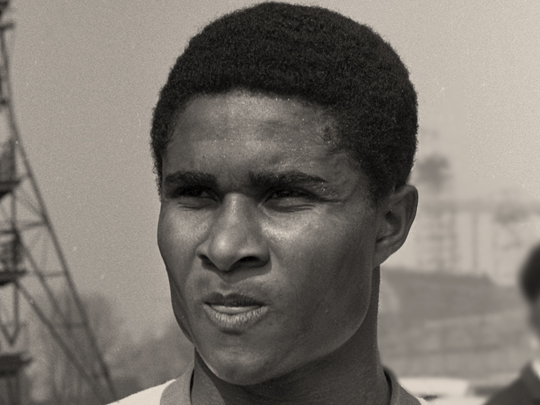
25 January 1942 – 5 January 2014 (Aged 71)
Eusébio was a Portuguese footballer, considered by many as one of the greatest footballers of all time.
Nicknamed the Black Panther, known for his speed and ferocious shot, Eusébio scored 733 goals in 745 matches, including 41 goals in 64 matches for Portugal.
Eusébio helped Portugal to a third-place finish at the 1966 World Cup, becoming the top scorer of the tournament with nine goals, including four in the match against North Korea.
European footballer of the year in 1965, Eusébio was also runner-up in 1962 and 1966. Benfica’s all-time top scorer, he won eleven league titles, five Portuguese cups, and a European Cup in 1962, also helping them reach three other finals.
Eusébio was the European Cup top scorer in 1964–65, 1965–66 and 1967–68, and top scorer in the league a record seven times.
In 1969, he became the first-ever player to win the European Golden Boot, also winning the award in 1973.
Born in Mozambique, Eusébio has been called “Africa’s first great footballer.” In 2004, he was ranked as the seventh-best player of all time in UEFA’s Golden Jubilee Poll. Eusébio died of heart failure at the age of 71.
Philip Seymour Hoffman
(Actor)
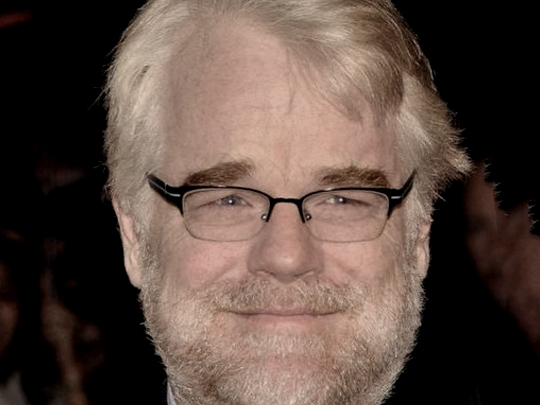
23 July 1967 – 2 February 2014 (Aged 46)
Hoffman was a renowned American actor best known for his roles in films such as Scent of a Woman, Patch Adams, Boogie Nights, Doubt, Almost Famous, The Big Lebowski, Charlie Wilson’s War, and Capote.
As a teenager, Hoffman studied acting at New York University’s Tisch School of the Arts, beginning his screen career in an episode of Law & Order in 1991.
In 2005, Hoffman’s portrayal of Truman Capote in Capote earned him the Academy Award for Best Actor. He received three more Oscar nominations, and five BAFTA and Golden Globe nominations, winning one each.
An accomplished theater actor and director, Hoffman’s performances on Broadway in True West, Long Day’s Journey into Night, and Death of a Salesman, all earned him Tony Award nominations.
Hoffman struggled with drug addiction before entering a rehabilitation program at age 22, remaining sober until relapsing in 2013.
He died aged 46 of mixed drug intoxication, including heroin, cocaine, and amphetamines.
James Garner
(Actor)
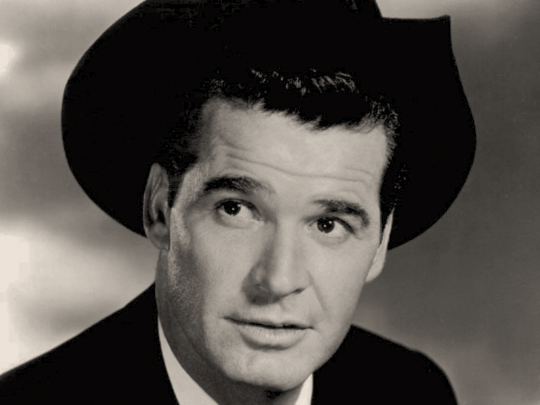
7 April 1928 – 19 July 2014 (Aged 86)
Garner was a much-loved American actor whose career spanned over five decades, including renowned television roles as Bret Maverick in Maverick and Jim Rockford in The Rockford Files.
Among his most famous film roles are The Great Escape, Grand Prix, Murphy’s Romance, Hour of the Gun, Space Cowboys, and The Notebook.
At age 16, he joined the United States Merchant Marine near the end of World War II, followed by 7 months in the California Army National Guard. Garner went on to serve as a rifleman in the Korean War for 14 months.
During the Korean War, Garner was wounded twice, first in the face and hand by shrapnel from a mortar round, and secondly, in the buttocks from friendly fire from U.S. fighter jets. He received 2 Purple Hearts for his wounds in Korea.
After the war, Garner got his break in acting in 1956, going on to be nominated for 15 Emmy Awards, winning the 1977 award as Outstanding Lead Actor in a Drama Series for The Rockford Files and in 1987 as executive producer of Promise.
In 1990, Garner was inducted into the Television Hall of Fame, and in February 2005, he received the Screen Actors Guild’s Lifetime Achievement Award.
Married for almost 58 years, Garner had a quintuple heart bypass heart in 1988, leading him to eventually quit smoking. After later suffering a stroke in 2008, Garner died from a massive heart attack at the age of 86.
Maya Angelou
(Poet/Author)
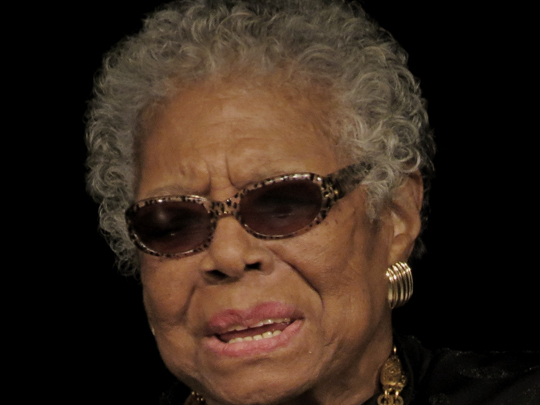
4 April 1928 – 28 May 2014 (Aged 86)
Angelou was an American poet and author whose 1969 autobiography I Know Why the Caged Bird Sings, about her life up to the age of 17, brought her international recognition and acclaim.
Angelou suffered from sexual assault at the age of 7, which greatly affected her early years. During World War II, Angelou moved to San Francisco, where she won a scholarship to study dance and acting.
After giving birth to her son, Angelou worked a number of jobs to support themselves. In the mid-1950s, Angelou’s career as a performer took off, going on to earn Tony and Emmy Award nominations during the 1970s.
During the 1960s, Angelou lived in Egypt and Ghana, working as an editor and a freelance writer, also working with Martin Luther King Jr. and Malcolm X in the midst of the Civil Rights Movement.
I Know Why the Caged Bird Sings became the first nonfiction best-seller by an African-American woman. In the 1990s, Angelou began making around 80 appearances a year on the lecture circuit, continuing to do so into her eighties.
At the inauguration of Bill Clinton in 1993, Angelou recited her poem “On the Pulse of Morning.” The audio version of the poem would win Angelou the Grammy Award for the best spoken-word album.
Angelou received numerous honors throughout her career, including two NAACP Image Awards in the outstanding literary work category in 2005 and 2009, and the U.S. Presidential Medal of Freedom in 2011.
After a career spanning over 50 years, Angelou died following a bout of ill-health at the age of 86.
Mickey Rooney
(Actor)
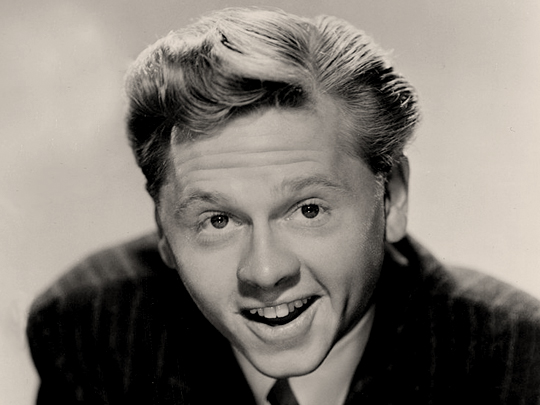
23 September 1920 – 6 April 2014 (Aged 93)
Rooney was an American actor, who was a famous child star and went on to have a career spanning nine decades, appearing in over 300 films.
At the height of his career, Rooney performed the much-loved role of Andy Hardy in a series of 15 films during the 1930s and 1940s.
At the age of six, Rooney made his film debut, peaking between the ages of 15 and 25, as he made 43 films during this time.
In 1939, he became the first teenager to be nominated for an Oscar for his leading role in Babes in Arms, and he was awarded a special Academy Juvenile Award.
During World War II, Rooney was drafted into the Army, entertaining over two million troops on stage and radio for over two years. He was awarded a Bronze Star for performing in combat zones.
After returning from the war in 1945, Rooney found himself too old for juvenile roles but too short to be an adult movie star. From this time forward, he was unable to get as many starring roles as he had before the war.
Rooney had supporting roles afterward in films such as Breakfast at Tiffany’s, Requiem for a Heavyweight, It’s a Mad, Mad, Mad, Mad World, and The Black Stallion. He won an Emmy and Golden Globe in 1982 for his role in Bill.
During his life, Rooney struggled with alcohol and pill addiction, also marrying eight times. Despite earning millions in his film career, he was forced to file for bankruptcy in 1962.
Rooney had been one of the last surviving stars of the silent film era, before dying from complications of diabetes aged 93. Shortly before his death, he testified before Congress about alleged physical abuse and exploitation by his family members.
